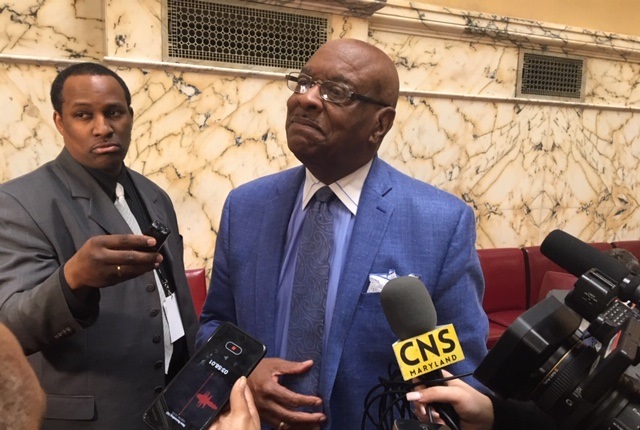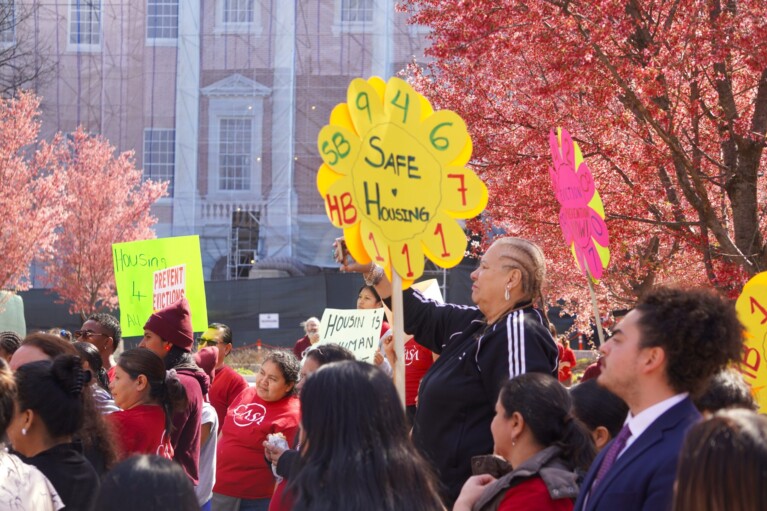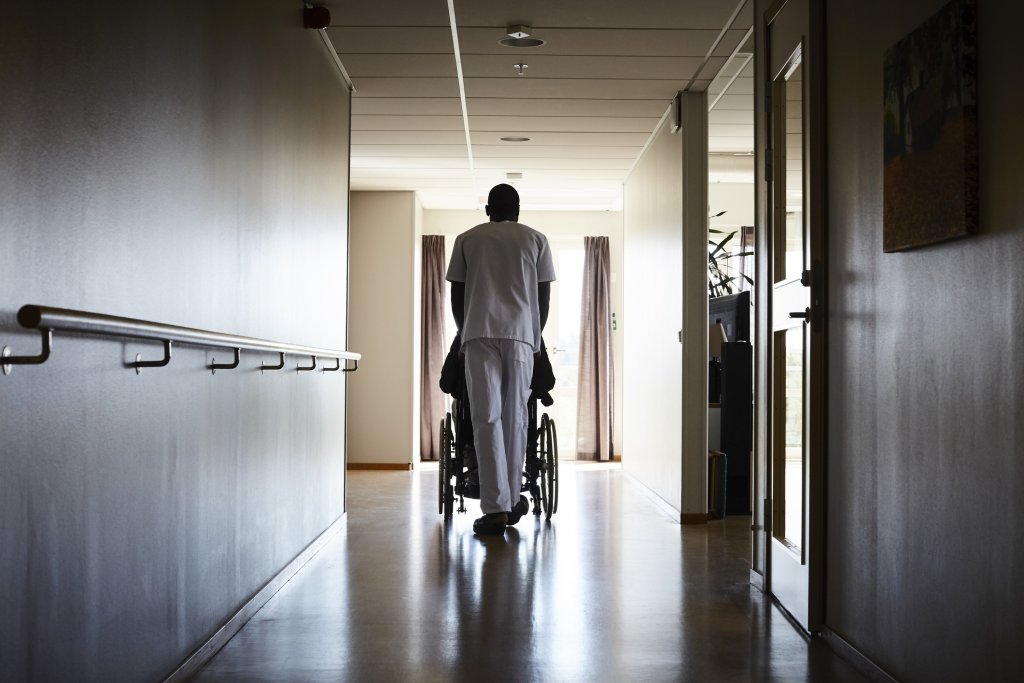
Most bills are not life or death bills.
But on Wednesday, the Maryland Senate considered a high-profile bill that, literally, dealt with life or death matters.
Yet that didn’t stop one lawmaker from staying on the sidelines. And he says he has no regrets about his decision.
SB 311, the End-of-Life Option Act, would have given people judged to have six months to live or less the option of obtaining lethal drugs from a physician – drugs they could then self-administer. Advocates claim the measure would provide people who are in severe pain with an alternative to a lengthy, excruciating decline.
When the measure came up for a final vote on the Senate floor on Wednesday, after lengthy and impassioned debate, 46 of the chamber’s 47 members pressed a button on their desk.
The letter Y, in green, popped up next to 23 names on the two large scoreboards on the east and west walls of the chamber. The letter N, in red, popped next to another 23 lawmakers’ names.
The only exception was Sen. Obie Patterson (D-Prince George’s).
The 23-23 tie doomed the measure to defeat. Patterson’s failure to cast a vote was an apparent violation of the chamber’s rules, because he was in his seat at the time of the roll call. Lawmakers occasionally absent themselves from the chamber if they want to avoid a tough vote.
Patterson told a large group of reporters after the session he couldn’t will himself to pick a side.
“I could not bring myself to move right or left on the bill and therefore I didn’t vote at all,” he said.
Patterson said he has been chairman of the board of trustees of Fort Foote Baptist Church in Fort Washington for the last 12 years. Members of his family and his fellow congregants were evenly divided on the concept of aid-in-dying legislation, he said.
Critics call such legislation “physician-assisted suicide.” They worry that people who require significant care feel pressure to end their lives, to relieve the burden on others.
“I had to vote my conscience,” Patterson, 81, said of his non-vote.
Patterson is in his first term in the Senate. He served three terms in the House of Delegates, from 1995 to 2007, followed by two terms on the Prince George’s County Council.
Todd Eberly, a political science professor at St. Mary’s College of Maryland, said it’s important for lawmakers to take a stand on the issues that come before the General Assembly.
“There’s no question that it’s an incredibly tough issue,” he said. “But folks occupy those positions because they’ve been elected to make those decisions. That’s why they’re there, to represent their constituents and to use their judgment.”
In the days leading up to the vote, backers of the legislation said, Patterson indicated he would support the bill.
Patterson denied that.
“I had not given anyone a full assurance as to how I was going to vote.”
Legislators who helped generate support for the bill and were angry with Patterson’s failure to cast a vote weren’t willing to say anything on the record.
Nine Senate Democrats, including President Thomas V. Mike Miller Jr. (D-Calvert), voted against the bill. One Republican, Sen. Christopher R. West of Baltimore County, voted for it.
A similar measure narrowly cleared the House of Delegates earlier this month, but because the Senate bill’s chief sponsor, Sen. William C. Smith Jr. (D-Montgomery) is leaving this week on a nine-month military deployment, aid-in-dying legislation is considered dead for this session. Smith said he was unlikely to reintroduce it next year, so as a practical political matter, the measure may be dead until the next legislative term, which begins in 2023.
As for Patterson, whether there are any consequences remains to be seen.
Rule 93 of the Maryland Senate reads: “Except as to members who have excused themselves from voting under the provisions of this rule, every member present shall vote on every question put to the Senate.”
The rule is rarely enforced.
Smith said he knew Patterson was wrestling with how to vote and respected the difficulty he had deciding what to do. But, Smith added, “We’re all here to do a job, to take tough votes and make tough decisions.”
“I knew that Sen. Patterson was a swing vote,” Smith said. “I just didn’t know which way he was going to go until the last minute. I certainly didn’t know he was not going to vote. He had to vote — or not vote — his conscience.”
Jamila Jaye Woods, the social justice activist who ran against Patterson in last year’s Democratic primary, conceded that the aid-in-dying legislation was “a very, very tough issue” for policymakers. But she criticized Patterson for not taking a vote.
“He was voted by the people of the 26th District with the expectation that he would vote one way or the other,” she said. “That is our reasonable service to the people.”
Patterson said he’s not fretting about the potential political fallout.
“My vote was the deciding vote,” he acknowledged. “I don’t regret taking the vote I did. I’m willing to face my voters any day.”




 Creative Commons Attribution
Creative Commons Attribution